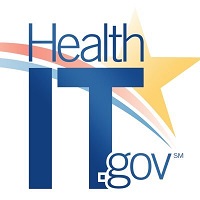 By Alex Baker and Michael Wittie, ONC
By Alex Baker and Michael Wittie, ONC
Twitter: @ONC_HealthIT
In January 2022, ONC issued a Request for Information (RFI) that sought public input on the ONC Health IT Certification Program and how it could incorporate standards, implementation specifications, and certification criteria related to electronic prior authorization. Shortly thereafter, ONC charged the Health Information Technology Advisory Committee (HITAC) with providing input and recommendations in response to this RFI. The Electronic Prior Authorization (ePA) RFI Task Force of the HITAC led consideration of the charge and developed a report and recommendations that were recently approved by the full HITAC.
Patients, caregivers, clinicians, and payors struggle with information exchange barriers, especially in the case of prior authorization where a lack of adopted standards and coordination across stakeholders leads to administrative burdens, care delays, and missed opportunities for improvement. A major goal of ePA is to reduce burden, increase efficiency, improve care, and introduce automation to decrease redundancy and unnecessary effort. This RFI, and the HITAC report and recommendations responding to it, advanced previous work done by the HITAC Intersection of Clinical and Administrative Data (ICAD) Task Force. The ePA RFI Task Force’s report, along with the work of the ICAD Task Force, also informs continued efforts by ONC and HHS to reduce administrative burden on all stakeholders by enabling seamless interoperability across the healthcare enterprise.
Using the questions in the ePA RFI to organize their work, the ePA RFI Task Force heard from multiple experts and key stakeholders, reviewed and analyzed the literature and existing standards landscape, and drew on Task Force members’ expertise to develop a set of recommendations on how the ONC Health IT Certification Program can improve ePA. Their recommendations covered 13 topic areas, which seek to inform the development of health IT certification criteria and move the healthcare industry toward streamlined, digitized electronic prior authorization processes with data-driven interoperability. The recommendation topics are:
- Suite of Certified Health IT Capabilities to Support the Prior Authorization Workflow
- Readiness of Implementation Guides to Support Functional Capabilities
- Patient-Centered Inclusion in ePA
- Prior Authorization Roadmap to FHIR
- Adoption at Scale
- Regulatory Coordination
- Attachments
- Prior Authorization Proving Ground For FHIR
- Establishment of an Advisory Process
- Accessibility of Health IT for ePA at Scale
- Innovation around ePA Integration
- Innovation around ePA Bundles
- Multi-Stakeholder Engagement
Through these recommendations, the HITAC addressed a range of issues critical to advancing this important but complex topic. Recommendations emphasized the need for an iterative and incremental approach to establishing technical requirements for ePA that would allow for further development and testing of emerging standards addressing different aspects of the ePA workflow. The HITAC also emphasized the need for coordination across HHS to successfully scale ePA processes, including regulatory and program alignment. Finally, the recommendations urged ONC and other stakeholders to focus on how ePA solutions can put patients at the center of administrative processes that affect their care.
ONC would like to thank the members of the ePA RFI Task Force, the Task Force co-chairs, the HITAC, and the public stakeholder contributors for their feedback and their dedication to improving healthcare in the United States.
We encourage you to read the final report, which details an ideal state, guiding principles, and recommendations. Lastly, public participation is always encouraged at all public HITAC and Task Force meetings – check out the HITAC calendar.
This article was originally published on the Health IT Buzz and is syndicated here with permission.
